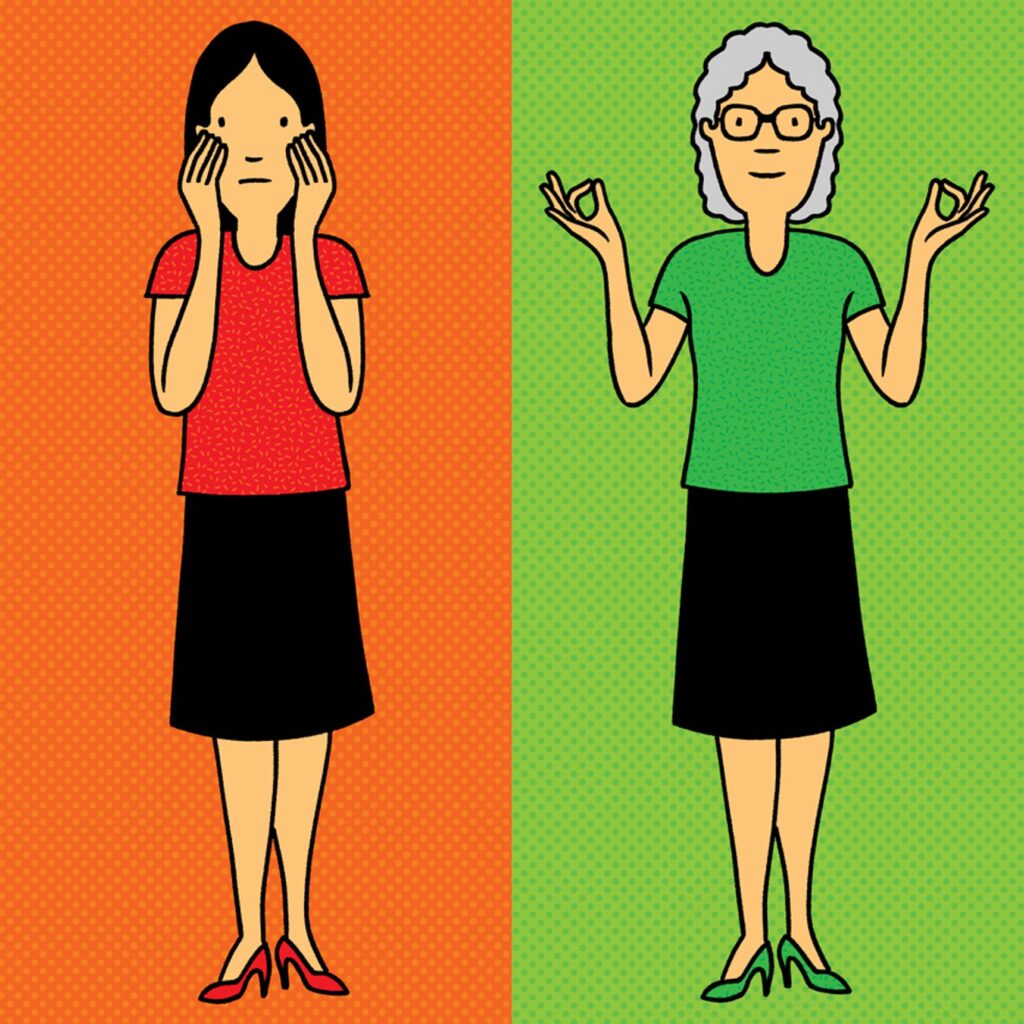Do We Really Get Mellower With Age?
By Susan Pinker
www.wsj.com/articles/do-we-really-get-mellower-with-age-11672938035
In my favorite documentary film series, “Up,” 14 British children from various backgrounds are followed by a film crew over 56 years. The first film was made in 1964, when all of them were 7, the last in 2019, when they were 63. Every seven years the director, Michael Apted, offered a new glimpse of the latest chapter in the subjects’ lives.
Now, in a science-imitates-art moment, a 20-year-long study has been published in the journal Developmental Psychology that charts the lives of a much bigger sample: 3,000 randomly selected Americans between the ages of 22 and 77. Each subject participated in three interview “bursts,” in 1996, 2005 and 2017, in which they talked to researchers every day for eight days. The goal was to map out the number of stressful events participants faced at each stage of life and how they reacted to these challenges.
“One of the things I really appreciate is the value of talking to someone about their day, just hearing their voice, every night for eight consecutive nights,” said David Almeida, a professor of human development at Penn State University, who has led the study since the beginning. “We really wanted to capture the ebb and flow of daily life as it was happening.”
The researchers found that stress drops steadily as we get older. Life is particularly fraught in young adulthood, when we face more stressful situations and have fewer psychological resources to deal with them. By the time we reach our 40s and 50s, our emotional lives tend to settle down. While this period is often portrayed in popular culture as a time of midlife crisis, divorce and career upheaval, the researchers state that “our findings reveal a clear and robust benefit with age.”
The researchers offer an explanation for this pattern. Young adulthood is marked by numerous transitions: graduating from college, finding a job, navigating financial independence, getting married and having small children. “Younger adults have more strain, more role conflict. But by midlife you’re more established in your career, and your children are growing up,” said Dr. Almeida.
Another explanation, he added, is that “When we don’t have as much life left, we want to maximize the time we have.” We’re more motivated to avoid jerks and futile conflicts. Finally, by midlife we have more experience in solving problems. “When I was younger, I would freak out if I had a plumbing problem,” Dr. Almeida said. “But now I know a plumber I can call.”
Stress is a biochemical reaction that evolved to help keep human beings alive when we were hunters and gatherers. Now that most of us work in cities, why is it still with us? “We’ve done a series of studies searching for its benefits,” Dr. Almeida explained. “One shows that stress forces you to solve novel problems; people who experience more daily stress also perform better on cognitive tasks.”
What’s more, on stressful days people tend to have more social contact. If you have a problem and call up your friend, she can’t necessarily provide a solution, “but you get the social support that you need to deal with it,” said Dr. Almeida. The benefit of that social interaction, especially in young adulthood, seems to outweigh the angst of stress.


